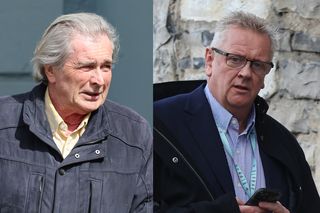Innovation can help to protect firms at even the toughest times
Gearoid Mooney is Enterprise Ireland divisional manager, research and innovation
When challenges arise for businesses, such as the current uncertainty over Ireland's future relationship with our biggest trading partner, a range of strategic responses are recommended, which generally involve driving competitiveness in your company.
Last week in these pages, Professor Richard Keegan outlined how implementing 'lean' practices to make companies more efficient can help exporters become more competitive in their chosen market.
Lean processes are one important part of Enterprise Ireland's broad innovation offer and our research consistently shows that the extensive use of innovation is a recurring feature of many of our most successful clients.
Our annual 'Business Results Survey for 2015' found that clients who availed of our innovation supports had 25pc higher employment levels and exports 30pc above average.
Even more striking is the finding that those involved in innovation collaborations had exports 10 times above the client average and exceeded the average employment level by 35pc.
Business innovation is about creating and profitably applying new ideas in a company, bringing new products, new processes and new services to customers. The spectrum of impacts can range from major product or service-line breakthroughs, through to finding more efficient ways of working, such as adopting the aforementioned lean processes.
At a recent talk for Enterprise Ireland advisors, Prof Robert C Wolcott, co-founder and executive director of the Kellogg Innovation Network based at Northwestern University in the US, identified two types of innovation.
He referred to the sort of internally focused actions involved in lean as incremental innovation whereas research and development aimed at growth, he termed radical innovation. Prof Wolcott has consulted for companies such as General Electric, Kraft Foods and Castrol.
Innovation strategy is all about identifying what he describes as "a portfolio of possibilities", which constitute the strategic parameters for an enterprise's R&D work. He emphasised the need to keep several ideas on the boil in order to react to unpredictable market conditions and to allow for failures.
This feeds into the second aspect of Wolcott's model - innovation management. This involves environmental scanning to carefully identify the projects to be pursued; developing metrics for monitoring progress; and testing the feasibility of a research project through early experimentation at the outset, which helps resolve uncertainty around areas such as resourcing, budgeting and a clearer idea of the outcome.
Professor Wolcott also made the observation that R&D planning should account for the cost rather than the rate of failure. Deciding on what projects to commit to, should be based on the expected value of the outcome. This should lead to more ambitious ideas with a lower chance of success still being pursued because if they pay off, the return is substantial.
That is why a core tenet of innovation best practice is ensuring the work is tapped into the constant pulse of customers' requirements. If possible, test your progress with them as you go through the process.
Before starting, companies should have access to the necessary facilities and equipment. A dedicated senior manager should be appointed and if the enterprise does not have appropriately skilled staff, then plug the gap through external hiring. Retaining the right consultant or advisor or collaborations are other options.
In many cases, innovation provides scaling opportunities for the future and gives businesses an edge on their competitors and therefore a better share of the market.
Product design is essential to most offerings, and with many having one-to-three-year lifespans, continual renewal is needed. Hence the advice to keep investing in Innovation in good times and bad.
This is not just theory. The hard facts from our annual analysis of our clients' financial performance go back many years and cover periods when business conditions were at their most expansive and during deepest financial crisis.
Gearoid Mooney is Enterprise Ireland divisional manager, research and innovation
Join the Irish Independent WhatsApp channel
Stay up to date with all the latest news














